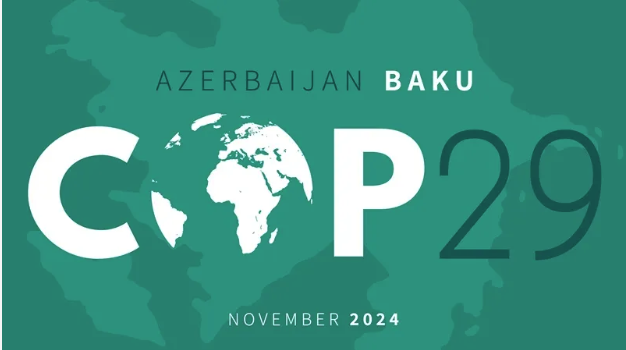As the world prepares to head to Brazil for COP30 in Belém later this year, the former Azerbaijani COP29 presidency said it will ensure that climate finance becomes more accessible to small island developing states.
In written answer to questions submitted by Observer media, the COP29 Presidency outlined their ongoing work to put last year’s climate deal into action, with a focus on getting money to countries that need it most.
The presidency acknowledged challenges with making climate funds accessible to countries with limited administrative capacity as small islands often struggle with international paperwork and red tape.
“For small island states that do not have large bureaucracies, this means making sure that the processes for accessing climate funds is simple, flexible, and pragmatic,” they stated.
This comes after the Baku agreement secured a $300 billion climate finance package last year.
However, when asked about criticism that this fell short of the $1.3 trillion identified as necessary, the COP29 Presidency defended the outcome.
“When developed countries proposed a goal of $250 billion, we were clear that they needed to go further, and we are proud of our work to increase that to $300 billion,” the presidency stated. “The Baku Finance Goal represents the largest finance commitment produced by any UN talk and is a symbol of how we bridged the differences between Parties and found solutions to reach historic consensus where previous negotiations had completely failed.”
The team is now working with Brazil to plan the next steps. “The COP29 Presidency is working with the COP30 Presidency and the UNFCCC Secretariat to deliver the Baku to Belem roadmap to scale up finance for developing countries to at least $1.3 trillion per year by 2035,” they explained.
On the Loss and Damage Fund, which received $730 million in pledges at COP29, the presidency stated: “The Loss and Damage Fund is now up and running, and more importantly ready to distribute money, which marks significant progress.”
They added that “by signing contributor and host country agreements, we are now in a position where the Loss and Damage Fund can disperse funding in 2025 to protect the most vulnerable communities from the impact of climate change”.
The team also highlighted their success in agreeing on carbon market rules after years of talks.
This deal, according to them “is projected to unlock $1 trillion per year by 2050 that can be channelled to climate projects around the world, including Antigua and other small island states”.
When asked about concerns regarding the 1.5°C temperature goal, the COP29 team explained their approach: “Our primary focus at COP29 was to unlock the funding necessary to enable implementation for the next decade.”
This year, following the re-election of the US President Donald Trump, United States once again withdrew from the Paris Agreement, which the COP29 presidency sought to shift towards the commitment of other actors in the climate fight.
“We are encouraged that there are many actors around the world who are stepping up to address the risks of climate change and grasp the opportunities of action. We remain open to engagement with the US and will continue to emphasise the importance of collective action.”
Looking ahead to COP30 in Brazil, the COP29 Presidency identified several priorities, including “holding governments to account for their promise in the Baku Finance Goal to mobilise $300 billion a year by 2035” and “supporting countries to produce national climate plans to reduce emissions.”
When questioned about Azerbaijan’s own reliance on fossil fuels, the presidency responded: “Azerbaijan recognises that investment in renewable energy is one of the greatest opportunities in the current age. Climate change directly affects Azerbaijan — and we see the clear need for deep non-hydrocarbon diversification to off-set decreasing oil revenues amidst long term decline of global oil demand.”
The COP29 team also emphasized their commitment to making international financial institutions “fit for purpose and ready to address the urgency and scale of the climate crisis,” particularly for small island states that face disproportionate climate impacts.




